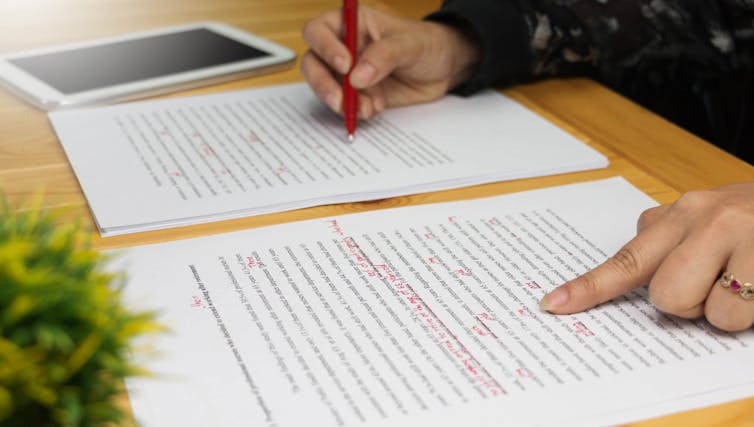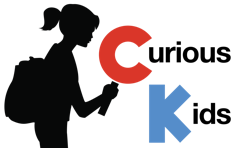 |
| Image: iStock |
The idea for sharing this post came from a session I recently conducted at the annual teaching conference organized by my university. A pedagogical conundrum was raised by a colleague whose enthusiasm and question stayed with me and inspired me to write this post. The question posed by this colleague is relevant to all instructors who have ever used group work to assess their students: How should one deal with the issues that arise when members of a group are not picking up their share of the responsibilities during a group work project?
The benefits of group work are well recognized (e.g., http://goo.gl/N8kqhy), as are the reasons students don’t like working in groups (Taylor, 2011). We have all had groups that operated magically, when group members brought out each other’s strengths and helped each member shine; but we have also had groups that failed miserably when members did not get along or did not pull equal weight in completing a group project.
Although much has been written about group work and its benefits and challenges, as well as variables, features, or components that can contribute to positive learning outcomes (Tomcho, & Foels, 2012), issues of implementation seem to pop up every time instructors get together to talk about their teaching challenges. In this post I focus on the persistent challenge of imbalance when not all group members contribute equally. What follows are a few simple ideas you might wish to consider that have worked well for me during years of trial and error in my teaching, as well as insights from my research.
1. Design a group project in which the students work in phases.
For instance, starting with a project idea, then moving to project development, followed by preliminary project outcomes – and requiring students to “check-in” at each phase before delivering the final project. Not only does this help ensure that the groups won’t wait until the final deadline is upon them to work on their project, but it also enables the instructor to touch base with every group and to offer guidance, support, or mediation, if needed, during the process.
2. Develop an element of the project that allows group members to make their own choices.
In my teaching, I usually give students the freedom to choose a topic area that interests them within the scope of the course or that is the most relevant or meaningful to the team members. This decision helps create a sense of ownership and enhances the students’ level of engagement, both of which are crucial for working on large group projects, and especially for those requiring students to carry out the work in phases throughout the term (see, for example, Enghag & Niedder, 2007, on the theoretical basis for student ownership of learning).
3. Within a group project, include a component requiring individual students to submit non-onerous individual work.
For example, the project could include a personal reflection piece (e.g., Huang, 2011a), in which each member individually reflects on the process and product of his or her own portion of the group work. Apart from the pedagogical benefits of learners engaging in individual reflection (Pavlovich, Collins, & Jones, 2009), this task or component will inevitably provide insights about the division-of-labor issue commonly raised by instructors and students alike. Both learners and the instructor can glean a great many insights from those individual reflection pieces, which instructors can take into account when assigning either project or final grades, depending on their individual approach to assessment. This process also enables students to gain greater understanding about what worked well and what could be improved.
One important matter to keep in mind when implementing the reflection component is the need to ensure that we, as instructors, clarify what we mean by “reflection” in order to minimize a potential mismatch between our expectations about reflective learning and our students’ understanding of what it entails. What we’d like our students to do is to engage in critical reflection – that is, thinking that involves different levels of reflection, rather than simply restating or describing what they did, or what I have called “non-transformative” reflection.
The goal is to encourage students to move beyond simply recalling what they did either individually or together within the group and instead to reflect on their personal discoveries about their own learning and the process of working collaboratively (i.e., understanding, analyzing, and evaluating the process and the product of their group efforts), and, importantly, to “verbalize” what they would do differently the next time around (i.e., pointing to the future).
This component is an example of what is called “writing/speaking to learn” (Manchón, 2011). For this task, it’s important that students not be required to follow any formatting or style guidelines. The reflection should be an informal piece of writing, much like a diary entry, and can be in any modality (e.g., writing, audio recording, video clip) that suits the characteristics or preferences of individual students to allow for their individual expression. For some additional simple guidelines about implementing learner reflection, refer to Huang (2011b).
4. Devote a segment (30 minutes or so) during class before all group projects begin to implement two important steps.
Step 1: Get to know each other. The first 10 minutes can be a period for all students to find and meet with the group members they have either been assigned or have self-selected. They should then spend some time exploring each other’s communication styles, which may arise from personal or culture-related differences (Lewis, 2006), to help them better anticipate different communication preferences and approaches to group work. This time can be spent sharing responses to guiding questions or statements, such as “I would describe my communication style/personality as …,” “I tend/prefer to deal with conflict by …,” and “I would appreciate my team members doing/not doing ….” (Huang, 2014). Guiding questions are especially helpful for groups that are culturally and linguistically diverse.
Step 2: Establish group norms. During the next 20 minutes, encourage each group to negotiate its own group norms (derived from Step 1) and ground rules. During this time, members of each team should elucidate, negotiate, and establish roles, responsibilities, and expectations. This process makes explicit the specific contributions and ownership of responsibilities that each team member negotiates and agrees to.
Below is a sample checklist that instructors can modify and use to facilitate this process and help prepare each group project to succeed (Huang, 2014). You can revise the items to suit a project or provide the list as an example for each group to use in creating its own list. The list can also be revisited during each check-point mentioned earlier and adjustments made as needed. Upon completion of the project, instructors can request the checklist(s) to be submitted (but not graded), along with other deliverables that are due.
5. Prepare students to expect the unexpected.
Rather than directing their every concern to you, students should be encouraged to become problem solvers not only by identifying problems, but also by developing solutions and choosing and evaluating the best ones so as to balance personal learning with the group’s project goals. At the same time, you’ll want to create and maintain a culture of openness that lets your students know you are readily available to provide guidance when groups reach an impasse.
In any group work situation, it is always possible that compatibility issues will arise between or among team members, as well as conflicts or problems with unequal distribution of work. The pre-group-project considerations described above, however, can easily be implemented to help minimize the likelihood that conflicts will develop that could negatively affect learning and outcomes. They may also help instructors and students in dealing with the specific common challenge of students who are not pulling their own weight in group collaborations, while maximizing the benefits of a group project not only in terms of content, but more, if not most, importantly, in learning how to work with others – a valuable life lesson that’s best learned through experience.
References:
Enghag, M., & Niedderer, H. (2008). Two dimensions of student ownership of learning during small-group work in physics. International Journal of Science and Mathematics Education, 6(4), 629-653.
Huang, L.-S. (2011a). Language learners as language researchers: The acquisition of English grammar through a corpus-aided discovery learning approach mediated by intra and interpersonal dialogues. In J. Newman, S. Rice, & H. Baayen (Eds.), Corpus-based studies in language documentation, use, and learning (pp. 91-122). Amsterdam: Rodopi Press.
Huang, L.-S. (2011b, Fall). Key concepts and theories in TESL: Learner reflection. TEAL News: The Association of B.C. Teachers of English as an Additional Language, pp. 9-13.
Huang, L.-S. (2014). Lessons learned from team-facilitation in ELT: Strategies for navigating the challenges and making it work. IATEFL ES(O)L Newsletter, pp. 13-17.
Lewis, R. D. (2006). When cultures collide: Leading across cultures (3rd ed.). Boston, MA: Nicholas Brealey Publishing.
Manchón, R. M. (Ed.). (2011). Learning-to-write and writing-to-learn in an additional language. Amsterdam: John Benjamins.
Pavlovich, K., Collins, E., Jones, G. (2009). Developing students’ skills in reflective practice: Design and assessment. Journal of Management Education, 33(1), 37-58.
Taylor, A. (2011). Top 10 reasons students dislike working in groups … and why I do it anyway. Biochemistry and Molecular Biology Education, 39(2), 219-220.
Tomcho, T. J., & Foels, R. (2012). Meta-analysis of group learning activities: Empirically based teaching recommendations. Teaching of Psychology, 39(3), 159-169.
Dr. Li-Shih Huang, Associate Professor of Applied Linguistics, Department of Linguistics, Learning and Teaching Scholar-in-Residence, Learning and Teaching Centre, University of Victoria, BC, Canada.










